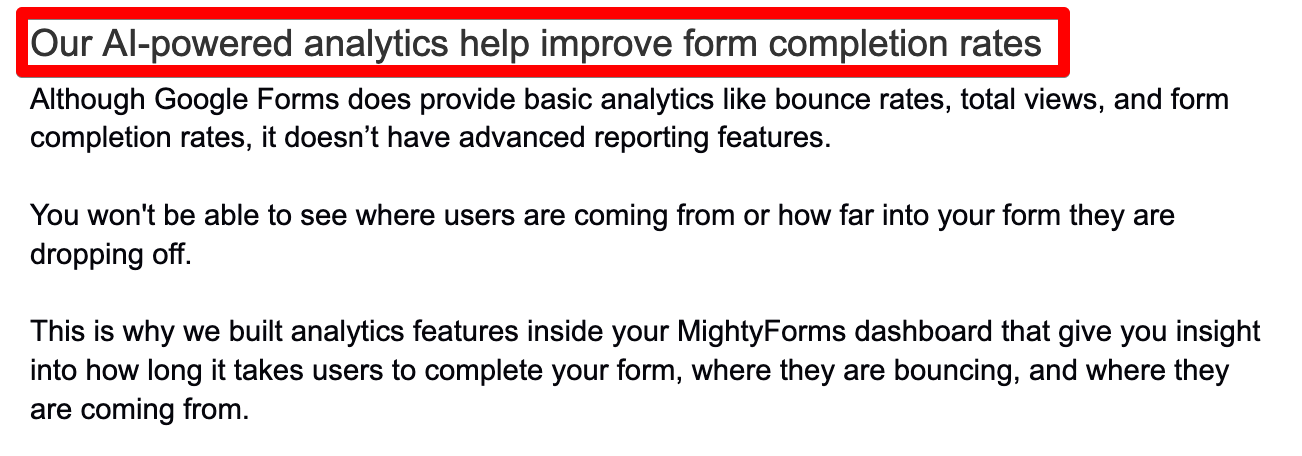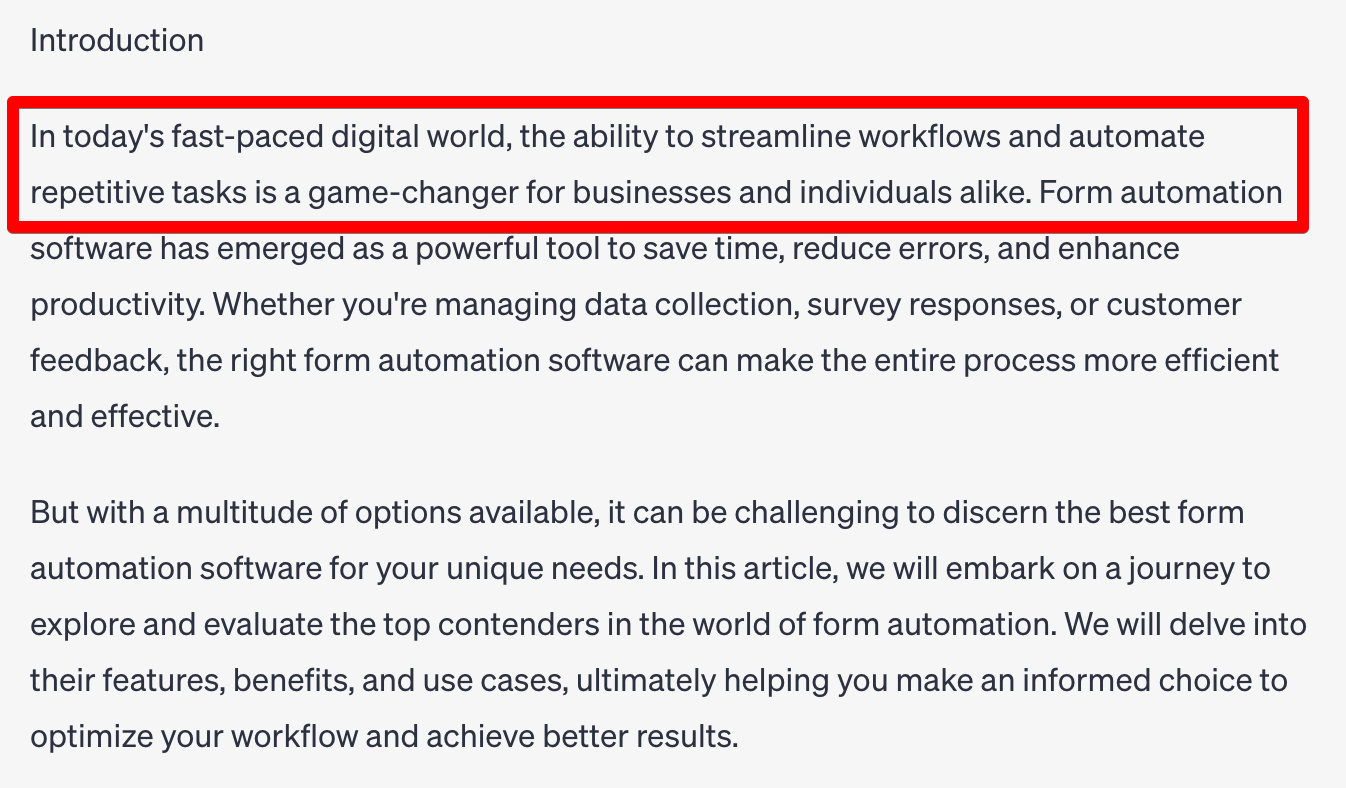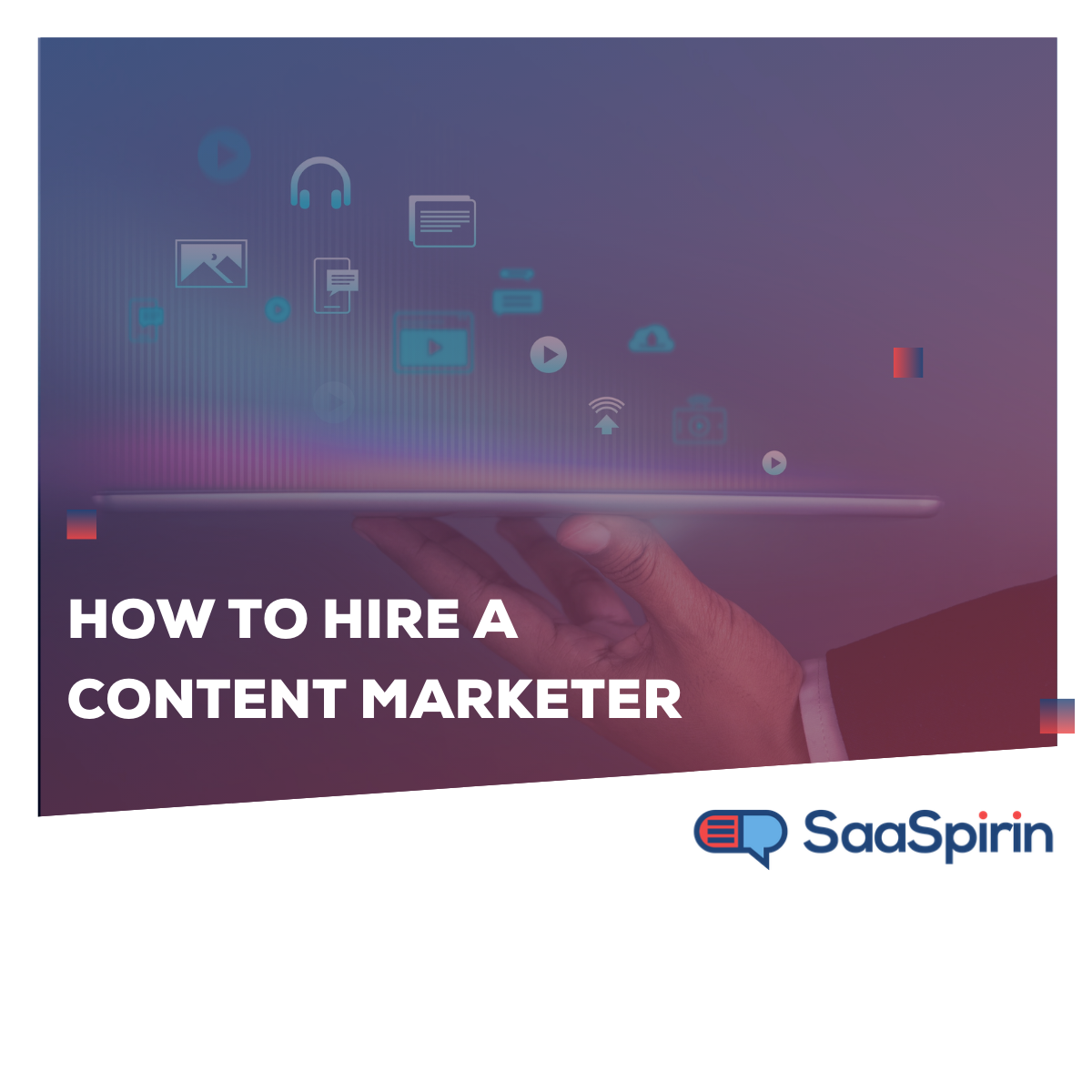AI Content vs Human Content: Will AI replace the need for human content writers and agencies?
By Yaseen Sadan on November 21, 2023
.png)
Since ChatGPT was launched, people have been asking us if AI will replace the need for content writers and agencies.
However, nobody is asking whether readers actually want to read AI content.
Our answer to this is no because AI simply regurgitates whatever's already on the internet; it doesn't create anything new.
So, if your content writing process involves typing the primary keyword you’re targeting into Google and regurgitating the content on the first page, then yes, ChatGPT will replace human content.
But if you're taking a more intelligent approach to content marketing by understanding your customer pain points and product features and differentiators, and creating content that shows customers how your product solves their pain points better than the competition, then ChatGPT can't replace human content.
In this article, we wanted to dive deeper into how we create content, how ChatGPT creates content, and talk about why human content (if you do it right) is far superior in terms of generating conversions.
We'll then compare ChatGPT's AI content vs human content we published for one of our clients, MightyForms.
How we create content
We prioritize high-buying intent keywords because they convert better. In our experience, high-buying intent keywords convert at 4% to 8% while top-of-the-funnel keywords max out at around 2%.
For example, if you own an accounting SaaS product, high-buying intent keywords might be "best accounting software" and "top accounting software for investors." Searchers typing these keywords into Google are ready to buy; they don't need to be nurtured through a long sales funnel.
However, to write content that will rank for these high-buying intent keywords, we need a really deep understanding of the product's features and differentiators. We need to understand how it solves customer pain points better than the competition so we can appeal to these pain points.
To gain this understanding, we talk to the team behind the product, use the product ourselves, and use the competitors’ products to see how our client's product is better.
This is the main problem with solely relying on ChatGPT to write content.
ChatGPT doesn't know what pain points your customers are facing. It also doesn’t understand the unique features your product offers and how it differs from the competition.
ChatGPT creates content by scanning articles, books, and web copy, regurgitating whatever it finds. It's basically producing a statistical average of what's on the internet.
MightyForms example: Best Google Forms alternative
To prove this point, we wanted to compare an article we wrote for MightyForms that targets the high-buying intent keyword "Google Forms alternative" against a ChatGPT output.
This is our article introduction:

Notice how we jumped straight into the key pain points that customers using Google Forms face.
If you've used Google Forms previously and you resonate with these pain points, you're thinking to yourself, "Yes! These are my people. They understand me." And in our experience, this is the main reason readers convert.
We also didn't guess what these pain points are. We actually sat down with the founder of MightyForms and picked his brain on what sets his product apart from competitors like Google Forms and why customers may want to switch over to MightyForms.
It would be impossible for AI to know these pain points. It would have to guess, and even though sometimes the AI might get it right, the guesses are mostly vague and plain wrong.
Once we've shown the reader that we understand their pain points, we dedicated an H2 to each pain point and presented how MightyForms solved these pain points.

You’ll also see that we mention a lot of differentiators. For example, “Google Forms doesn’t show you how far into your form users are dropping off. Fortunately, MightyForms does, so you can tweak certain questions to reduce bounce rates.”
For us to discover this differentiator, we had to actually use MightyForms’ app as well as Google Forms.
ChatGPT cannot do this. It won't use your product, use the competitor's product, and interview the people behind the scenes to uncover key differentiators.
It'll scan all the content on the internet talking about Google Forms alternatives, and produce a statistical average.
So, let's look at ChatGPT's response:

The first sentence is already a dead giveaway that ChatGPT knows nothing about the reader’s pain points. It's a fluffy, drawn-out way of saying, "Online forms are important."
Someone who has used Google Forms and decided it's too basic already understands the importance of online forms. That's why they are looking for a more advanced form builder. There's no need to state the obvious.
The second sentence is a typical ChatGPT output. It states obvious benefits that someone who has used Google Forms previously already knows. It’s like telling David Ogilvy that marketing is important because it can help sell more products.
We also noticed that ChatGPT loves talking about super vague benefits that don’t really mean much. For example, “enhance productivity,” “achieve better results,” and “reduce errors.”
Contrast this to how specific we were when we listed our readers’ pain points.
If we scroll down, we'll find that ChatGPT simply gives a surface-level summary of each alternative's product page.

They aren't directly comparing Google Forms to these alternatives, nor are they discussing why these are good alternatives and what features they offer that Google Forms don't.
Should you use AI for content production?
This post isn't meant to bash AI and say you should only use humans to write your content.
This isn't true. ChatGPT can improve a lot of your writing processes. At SaaSpirin, we use ChatGPT to generate high-buying intent keywords for our clients when we’ve run out of ideas.
However, we take issue with businesses saying that they can automate their entire content marketing/SEO strategy by writing a few prompts into ChatGPT.
Our response to this is that ChatGPT doesn't understand your customers and why they buy from you; nor does it understand your product's features and differentiators well enough to write articles that'll get your readers to convert.
So, by all means, if you're using ChatGPT to speed up certain parts of your research, writing, or editing process, then great!
But if you're solely using ChatGPT to make arguments for your product, you'll miss out on many details your readers care about.
You need to use your product, use your competitor's product, and understand what makes your product better. You also need to interview customers, know what pain points you're solving, and communicate this nuance inside your article.
For example, "All our competitors offer X. We offer Y instead, and we believe Y is better because of Z."
Partner with a conversion-based SEO agency today!
If you’re thinking about outsourcing content creation to an SEO agency that takes responsibility for conversions, book a quick call with us.
We’ll sit down with you and your team and ask questions that’ll help us gain an understanding of your product’s key features, benefits, and differentiators. We’ll then send over a couple of surveys that you need to forward to your customers so we can understand the main reasons they buy your product.
With this foundation of knowledge, we’ll write articles that target high-buying intent keywords, i.e. readers who’re already looking for your product. This allows you to generate conversions quicker than your competitors going after top-of-the-funnel, informational keywords.
You May Also Like
These Related Stories

Hiring a Content Agency vs Your Own Writer

How to Hire a Content Marketer
%20(1).png)
